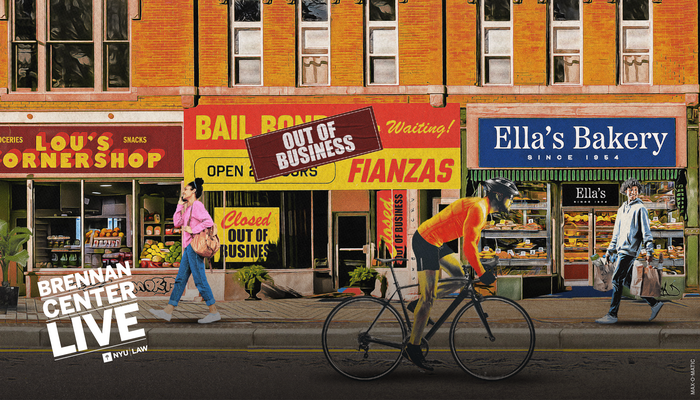Cities, states, and counties across the nation have curbed the use of money bail. Reformers say that jailing criminal defendants who can’t afford to buy their pretrial freedom punishes poverty. Opponents, however, blamed the uptick in crime during the Covid-19 pandemic on bail reform and pushed to roll back the changes. So what’s the truth — did bail reform cause an increase in crime?
Terry-Ann Craigie, associate professor of economics at Smith College and economics fellow in the Brennan Center’s Justice Program, and Ames Grawert, senior counsel in the Brennan Center’s Justice Program, compared crime rates in cities that enacted bail reforms with those that did not. In the broadest and most comprehensive study of this issue to date, they found no evidence that efforts to limit bail and pretrial detention increased crime. Ultimately, there are more promising ways to lower crime than to attack and weaken bail reform.
Join us on Thursday, August 15, at 3 p.m. ET for a virtual discussion with authors Craigie and Grawert, moderated by Mireya Navarro, editor in chief of Brennan en español, to explore crime trends in cities that did and did not limit bail, the possible unintended consequences of some reforms, and more effective ways to bolster public safety.
Speakers:
- Ames Grawert, Senior Counsel, Brennan Center Justice Program
- Terry-Ann Craigie, Associate Professor of Economics, Smith College; Economics Fellow, Brennan Center Justice Program
- Moderator: Mireya Navarro, Editor in Chief, Brennan en español
